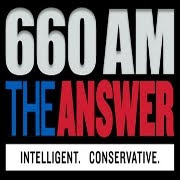J-D asks you 2 questions: Do most Democrats hate the United States of America? If so, are they becoming a public nusiance?
Christy Hoppe of the Dallas Morning News reports, AUSTIN – Texas Democrats have staked out political ground that trumpets their beliefs and will ignite supporters at the party's state convention this week – protecting the rights of eligible citizens to vote.
The only problem – especially for a political party that hasn't won a statewide office in 15 years – is that when it comes to whether voters should have to show a photo ID, 70 percent of Texans disagree with the Democrats.
Most Texans believe that if they need one to rent a video or get on a plane, it makes sense that there should be equal safeguards for the ballot.
But many Democrats believe it would mean turning away eligible voters – especially the poor, disabled and elderly who are the least likely to have driver's licenses.
Republicans have made a new law on the issue, usually referred to by the shorthand "voter ID," one of their top priorities. Democrats have vowed to fight, but it poses a political problem.
"It is, in the short-term, a loser issue," said Daron Shaw, a pollster and University of Texas political science professor.
In a poll he conducted last year, voters were told that "such a requirement has a negligible effect on voter fraud but places significant obstacles on elderly, low income, disabled and minority voters."
But an overwhelming majority of Texans still liked the idea of voter ID.
Support exceeded 50 percent among all demographic groups – even among Hispanics and the elderly, who Democrats say they are trying to protect, Shaw said.Democrats are trying to convince a conservative-leaning Texas electorate that they, not the GOP, offer mainstream positions on issues heading into the fall battle for statewide offices and control of the Legislature.
The voter ID stance may send the opposite message.
But Democrats must champion the cause regardless of polls, said Rep. Rafael Anchia of Dallas.
"It's the right position, and that's what matters," said Anchia, who has led Democrats' efforts on the issue in the Legislature.
The polls reflect a false presumption that everyone has a photo ID, he said, arguing that too many people don't and could be harmed by a new law.
"When you start doing research, you realize a lot of people don't have an ID, especially the least among us, and I think it's terribly important to protect their voting rights," Anchia said.
State officials estimate that between 150,000 and 450,000 adult Texans don't have photo IDs.
"If you're going to encumber voting rights then you should have a compelling state issue," Anchia said. "And voter impersonation is rare to nonexistent."
The pledge to fight voter ID is in the Democratic platform and the document lauds Democratic lawmakers who pushed the Republican-dominated Legislature to a stalemate on the issue last year.
Neither side would budge, and as a result, hundreds of bills died in the final days of the session.
The platform committee will address the issue again during the convention Friday and Saturday in Corpus Christi, said state Rep. Garnet Coleman of Houston, the committee chairman.
"There will be a section that says we are against the suppression of voters. The right to vote is fundamental," Coleman said.
He and others said that requiring photo IDs is a solution in search of a problem.
Since 2002, the attorney general has investigated 267 reports of voting irregularity, resulting in 35 prosecutions. Almost all involved absentee balloting abuses, not voter impersonation.
Coleman also said the polls don't matter.
"I'm sure 70 percent of people might have said it was OK in the '50s and '60s to have blacks segregated," he said. "It's just wrong. You can poll on an issue and it doesn't mean everybody understands the ramifications, which could include denying citizens a fundamental right."
Bills drafted by Republicans have provided that voters without photo IDs could produce other documents to prove their identities, such as utility bills or social security cards.
But most Democrats have fought such compromises, saying most voters don't carry those items to the polling place.
Rep. Jim McReynolds, D-Lufkin, hails from a conservative district and knows that most constituents think voter IDs are a good idea. He said that a law can be crafted to provide better ballot security and still ensure that those eligible can vote.
"I'm for voter ID. I just want one where your mama can vote," he said. "Sane heads on both sides of this can prevail, if everyone could get together instead of gouging each other in the eye."
McReynolds said both Republicans and Democrats have dug in and made the issue about scoring partisan points.
Democratic governor candidate Bill White said he opposes requiring that voters have a photo ID but would consider additional ID requirements to "ensure the integrity of the process" if they don't deter voting.
Pollster Shaw said Democrats and Republicans both seem to be trying to alienate voters.
"Both parties are vying to see who can be more stupid," he said.
He cited Arlington Republican Rep. Joe Barton apologizing to BP and Democrats, having pushed through an unpopular health care plan. Now, Shaw said, Texas Democrats are saying: "What's our best issue? One that has 70 percent support on the other side."
And it's particularly difficult for Democrats in this year's climate, the pollster noted.
"You're pushing an unpopular public policy decision in the face of a conservative electorate," he said.
"They're already fired up in light of a lot of other policies that are being adopted."
Source: http://www.dallasnews.com/sharedcontent/dws/dn/latestnews/stories/062410dnpolvoterid.215f317.html
Friday, June 25, 2010
Subscribe to:
Post Comments (Atom)







No comments:
Post a Comment